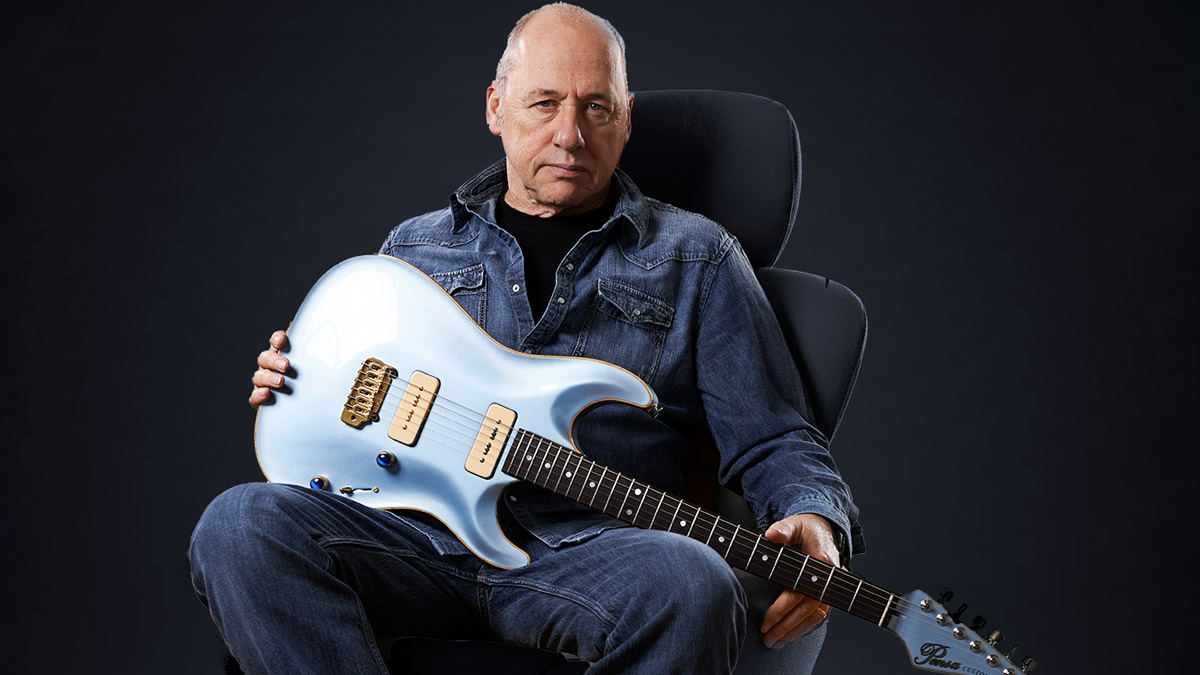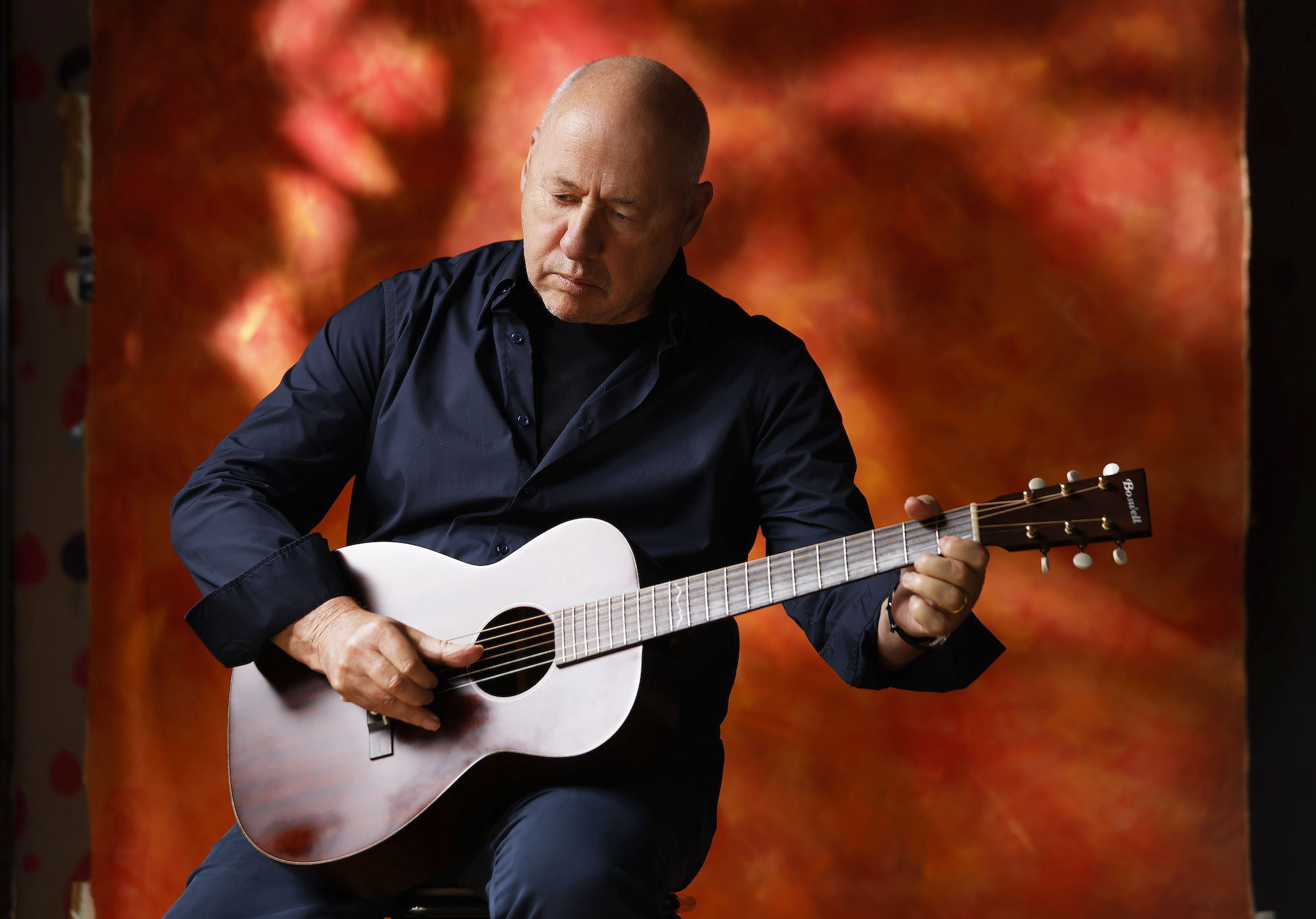“Playing four notes to the bar with your thumb changed everything for me.” Mark Knopfler grew up wanting to be like Jimi Hendrix. He's revealed the guitarist who changed his mind
He admits playing with a pick is “faster and louder,” but he's created his finest music without one

All the latest guitar news, interviews, lessons, reviews, deals and more, direct to your inbox!
You are now subscribed
Your newsletter sign-up was successful
Growing up, Mark Knopfler was just like any other young guitarist. He chose the biggest players to identify with and emulate.
In the end, however, it was a humble guitarist from his own environs — the North East of England — who had the biggest impact on his guitar journey.
In a new career-spanning interview with BBC Radio 2’s The Rock Show, Knopfler details how fingerpicking revolutionized his guitar playing and how that connected him to the unlikely influence behind one of his greatest riffs.
Until very recently, the Dire Straits man had never truly ditched the guitar pick. Rather, his most defining works, including the stomp and shuffle of “Sultans of Swing,” shone a spotlight onto the pick-free parts of his back catalog.
“Some people fall in love with classical music and want to be a classical musician, or they want to play classical guitar or Spanish guitar,” he says. “I just want to play skiffle and rock and roll.
“I just wanted to be B.B. King or Jimi Hendrix. I loved them both,” he says. “I was playing with a pick then all the time, on electric. I was learning to fingerpick, but that was all I wanted to do. I’d be playing ‘Voodoo Child’ or I’d be playing ‘Purple Haze,’ or ‘Hey Joe.’”
Over time, fingerpicking grew in prominence. Meanwhile, Knopfler — who calls himself “inherently lazy” — became increasingly frustrated that he could never find a pick when he neded one.
All the latest guitar news, interviews, lessons, reviews, deals and more, direct to your inbox!
That's when the lightbulb went on: the idea that changed his music — and his tone — for the better: He discovered the benefits of fingerpicking, which went beyond not having to search high and low for a guitar pick,

“The attack of your fingers is gonna be more rounded, softer, which maybe is a characteristic of mine,” he says of his eureka moment.
As for that guitarist who influenced him? He was the boyfriend of a friend's older sister.
“It was a folk singer up in Northumberland, Joe Davidson," Knopfler reveals. "I remember, he taught me how to do that. That’s playing four notes to the bar with your thumb, and that changed everything for me because that’s what I wanted to be able to do. So it was like learning to ride a bike.”
The echoes of that moment live on in a song like “Money for Nothing,” even as the musical world he drew it from comes as a surprise. The song was the band’s biggest commercial success and an early darling of the MTV generation. But beneath the overdriven qualities of its riff, it isn’t a rock song.
“It’s a hoedown lick,” Knopfler tells The Rock Show host Shaun Keaveny. “That’s what it is.”
As he revealed in his Guitar Player chat last year, another key change to his playing style came early on came from his sister. The left-handed youngster was miming to a song on a tennis racket, pretending it was an electric guitar, when his sister flipped it around. That stuck with him, and it makes what he can do with his right hand all the more impressive.
At the end of the day, Knopfler isn’t ignorant of the benefits a pick can provide a player.
“It’s louder. It’s faster. It’s got a better signal. It’s the best amplifier there is,” he says.
But as a player who grew up idolizing plectrum-touting players — including the Shadows’ Hank Marvin, who was also a big influence on David Gilmour’s lyrical solo style — Knopfler found something different by following the path that suited him best.
In related news, the guitarist recently named the hardest Dire Straits song to play, which has nothing to do with complexity. On top of that, he’s spoken about the few guitars he could never get rid of and revealed that he and Jeff Beck planned to make an album together before the virtuoso’s death.
A freelance writer with a penchant for music that gets weird, Phil is a regular contributor to Prog, Guitar World, and Total Guitar magazines and is especially keen on shining a light on unknown artists. Outside of the journalism realm, you can find him writing angular riffs in progressive metal band, Prognosis, in which he slings an 8-string Strandberg Boden Original, churning that low string through a variety of tunings. He's also a published author and is currently penning his debut novel which chucks fantasy, mythology and humanity into a great big melting pot.


